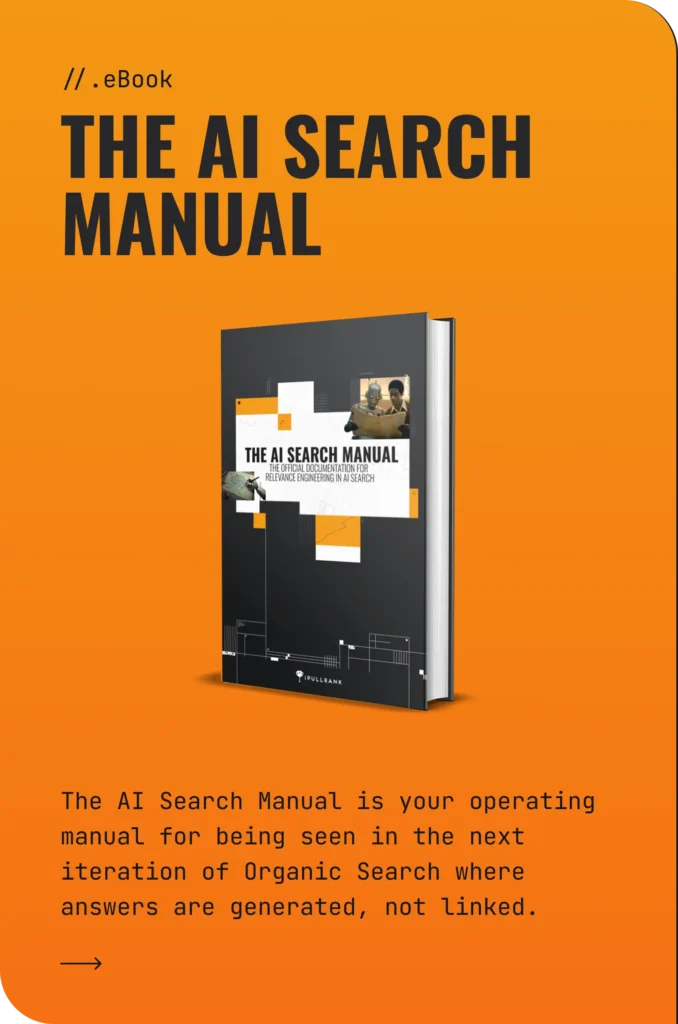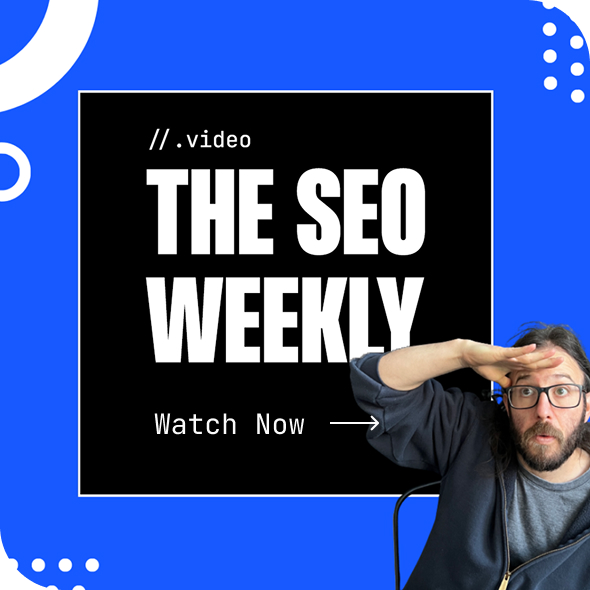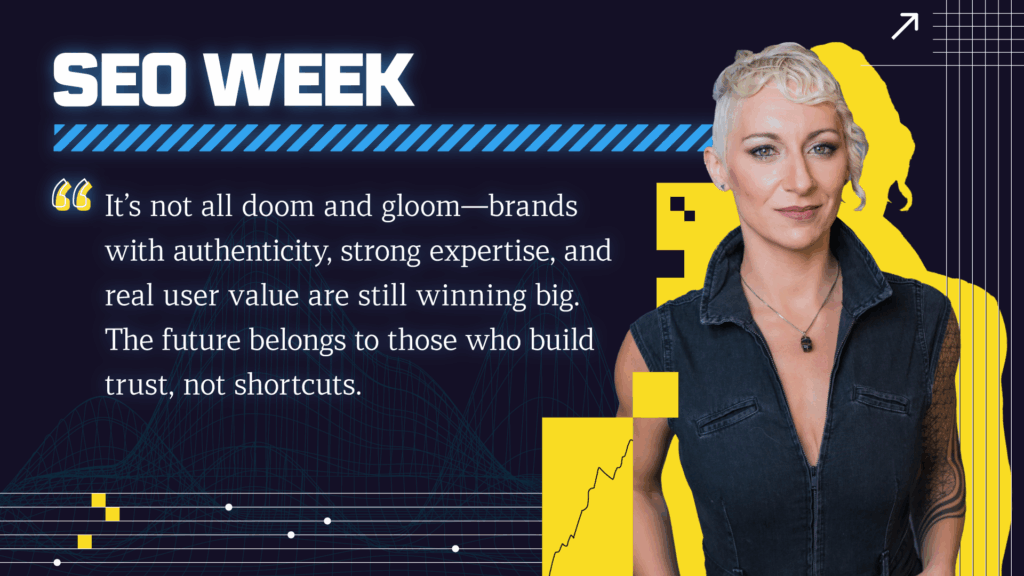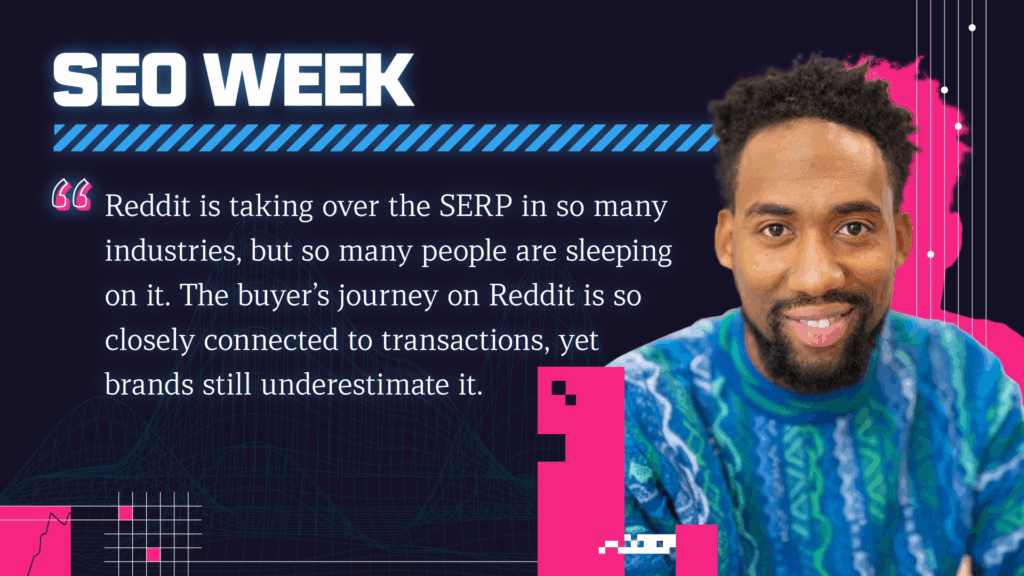How do you stay visible in LLMs when your website has millions of pages and your competitors are fighting for the same visibility?
About 63% of all website traffic still comes from Google, but that number is decreasing as the use of AI in search increases. Nearly 30% of searchers use ChatGPT for their queries. This is a clear signal that visibility in these channels can directly impact revenue, and that falling behind in enterprise SEO can cost a business millions in missed opportunities.
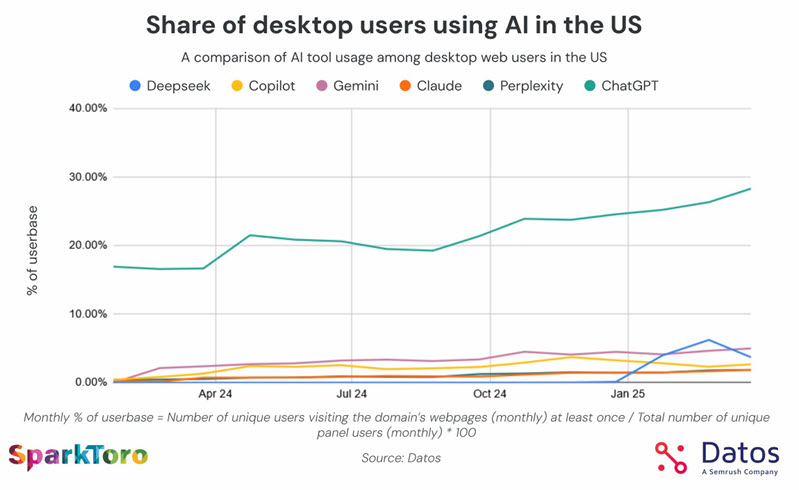
SEO is already complex. At the enterprise level, it becomes even more complicated involving subdomains, competing priorities, legacy content, and constant algorithm updates. Considering all of the impacts on search from generative AI, AI Overviews and AI Mode, you might need some help.
If you’re the head of marketing at Bank of America, how are you thinking about website traffic from Google this year? Or what about the CMO of Rakuten? Are you worried about other ecommerce companies stealing the spotlight?
If AI Mode became the official search channel tomorrow, would your company’s revenue be safe due to the sheer strength of its brand recognition, or would you need to scramble and pivot?
Enterprise SEO gives large organizations a structure and strategy so they can become visible in every search channel. At that scale, you have two major challenges: the debt of scale and internal bureaucracy.
You need to mitigate the risk of doing something AND the risk of doing nothing.
What’s the contingency plan? What are your competitors doing?
What is Enterprise SEO?
Enterprise SEO is a more strategic approach to search that’s customized for the needs of large organizations because there’s a moment in every company’s growth when traditional SEO advice stops working and you need to ramp up your efforts.
When organizations have larger websites with massive volumes of content, they need to address the complexities of optimizing the technical aspects, developing a content strategy, appearing in LLMs, and ensuring scalability. This takes collaboration across departments, data for decision-making, and Relevance Engineering.
Does your business need enterprise SEO? See if any of these apply to you:
- Businesses that operate in multiple locations, both nationally and internationally
- Ecommerce websites with over 10,000 pages
- Companies with annual revenue of over $1 billion
- Media publishers with thousands of articles
- Businesses with multiple subdomains or websites
- Fortune 500 and Fortune 1000 brands
Nike has more than 10 million pages indexed in Google and ranks for over 6 million keywords. That kind of footprint needs enterprise SEO.

For brands this size, traditional SEO best practices on their own are not enough. They have to be adapted and expanded to work within the framework of a massive, multifaceted site like Nike’s.
When done well, enterprise SEO can propel your brand ahead of the competition, enhance your company’s online presence, and provide clear insights into the return on your SEO investment. When you’re working with an agency, especially under a fixed-cost contract, it becomes much easier to track outcomes. If organic search drives meaningful conversions and revenue growth, calculating ROI is straightforward.
For example, a large enterprise ecommerce site was struggling with major technical SEO issues. Their site had hundreds of 404 errors, improperly placed no-index tags, large amounts of duplicate content, and broken internal links. At the time, their team believed they had been negatively impacted by a recent Google core algorithm update.
With support from iPullRank, they were able to resolve the issues across the board. The result was a 34 percent increase in organic traffic revenue year over year, driven by a 24 percent net increase in transactions over the same time period.
That improvement led to more than $24.8 million in incremental revenue.
A strong enterprise SEO strategy ensures that large-scale websites serve high-quality content that answers user needs while delivering a seamless experience. It is the difference between showing up in search and owning the space.
To see how leading brands are putting this into practice, watch the replay below of an iPullRank webinar from 2021 (though much of it remains relevant, including the section on common problems and solutions):
Find our additional Enterprise SEO solutions in the written recap.
Relevance Engineering for Enterprise SEO
Google reports that 40% of consumers who use Google Search agree it helps them make smart and informed decisions when shopping versus social media (28%) and online marketplaces (34%). And according to Sparktoro and Datos, organic search contributes 63% of website traffic.
However, with the advent of AI Overviews and AI Mode stealing clicks from websites and lowering click-through-rates, brand recognition has never been more important.
Relevance Engineering is the foundation for the future of search to ensure your ideal customer is able to find you. It combines the efforts of information retrieval, user experience, content strategy, AI, and digital PR to ensure visibility everywhere, including in LLMs, YouTube, TikTok, Amazon, the app store, and more.

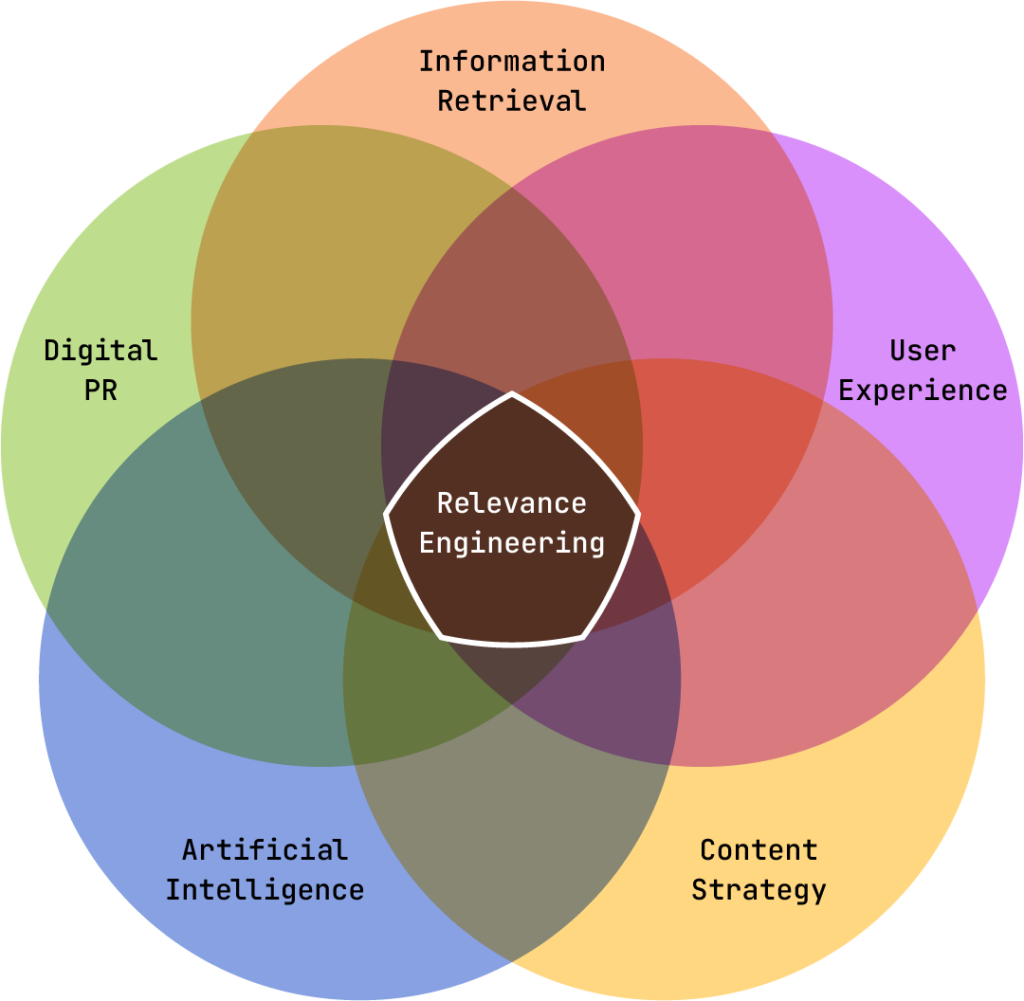
Overcoming the Limitations of Traditional Rank Tracking
Content Marketing could be effective with top-of-funnel content. You offer informative and educational articles and you attract clicks. But these days,with less traffic, you need a more precise approach for your strategy. Focus on middle-to-bottom-of-funnel content that’s more customized and specific for searchers first. They no longer need broad content from you, because the sad truth is that LLMs can generate it. They just want to know if and how you can help solve their problem, and why they should choose you.
Also, ensure your website has an easy user experience and a positive digital footprint with good PR, otherwise, you will lose out on direct traffic to your site, which you will definitely need as AI Overviews and AI Mode become more common and, eventually, when AI Mode takes over as the main search surface. At that point, traffic will primarily be brand traffic and comparing your solution to others at the bottom of the funnel.
Impacts of AI Overviews and AI Mode on Enterprise SEO
In May 2025, Google I/O revealed a shift in how search works through AI Overviews and AI Mode.
Read more: Implications of AI Mode and Personal Context – 2025 Google I/O Hot Takes
Instead of presenting 10 blue links, Google now transforms a single query into “fan-out” subqueries, creating a reasoning chain that pulls together the strongest content passages and stitches them into one concise response.
This means users may never click through to your site, but your content could still be cited in the answer.
As Mike King explains in his article about how AI Mode works: “Yes, the base level of the SEO work involved is still about being crawled, rendered, processed, indexed, ranked, and re-ranked. However, that’s just where things start for a surface like AI Mode. What’s different is that we don’t have much control over how we show up on the other side of the result.”
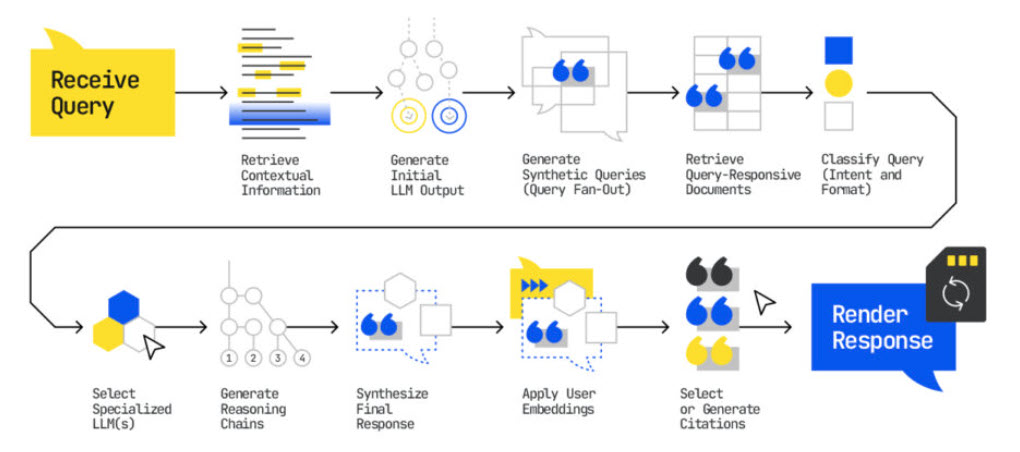
For enterprises, this redefines success because visibility is now about being cited, not clicked. You might not earn the traffic anymore, but you can still earn brand authority by being the source of truth.
AI Mode indexes passages instead of pages. Each passage is embedded in vector space and evaluated. The competition is no longer among websites, but among chunks of content, so there’s now a focus on crafting bite-sized, semantically rich passages.
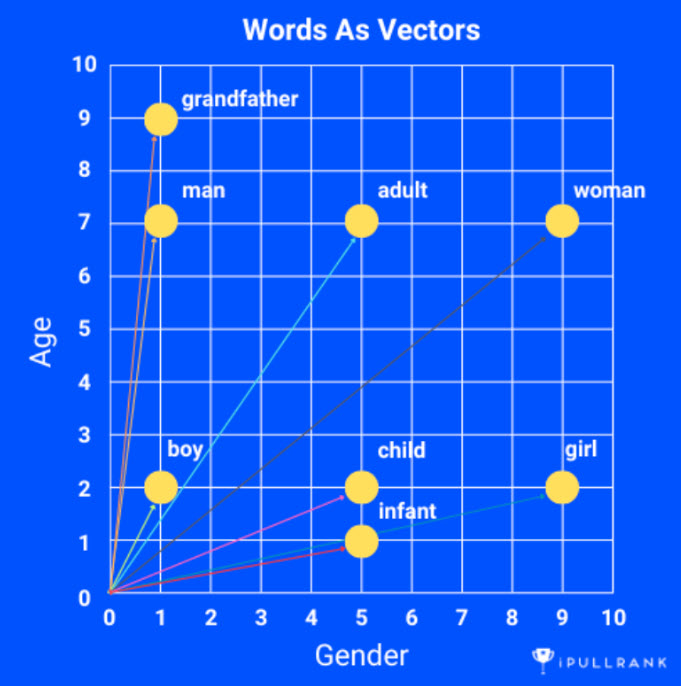
Read More: Relevance is Not a Qualitative Measure for Search Engines
You can even check your own page’s relevance against your targeted topic with iPullRank’s vector embedding analysis tool, Orbitwise.
AI Mode also personalizes results using user embeddings drawn from previous queries, behaviors, and even Google account data, so two users typing the same query could receive entirely different answers. This makes traditional rank tracking obsolete.
But don’t lose hope. Organic traffic may decline, but citations in AI Overviews and AI Mode can still build credibility and brand awareness. Enterprises just need to engineer content for fan-out coverage, passage-level relevance, and multimodal representation (text, visuals, voice) to align with what the AI values.
Register for iPullRank’s June webinar: How to Optimize for AI Mode Using Query Fan-Outs and User Context
Digital PR and Its Impact on Enterprise SEO
Search has always been a brand channel. Searchers are more educated now and have more familiarity with brand names. They’re looking for brands that they recognize and can trust. Google your brand. Do the results reflect the story you want to tell? Is Google showing the most valuable, accurate, and up-to-date information about your organization? Is outdated content or negative press dominating the page?
A strong enterprise SEO agency partner that uses Relevance Engineering can help you take full ownership of your branded footprint. That means showing up across all search channels, pushing down unwanted results, managing reputation risks, and building a search presence that actually reflects your brand.
Consider this example of the AI Mode result for the aerospace and defense company Boeing. Much of the summary is taken up by recent negative PR events:
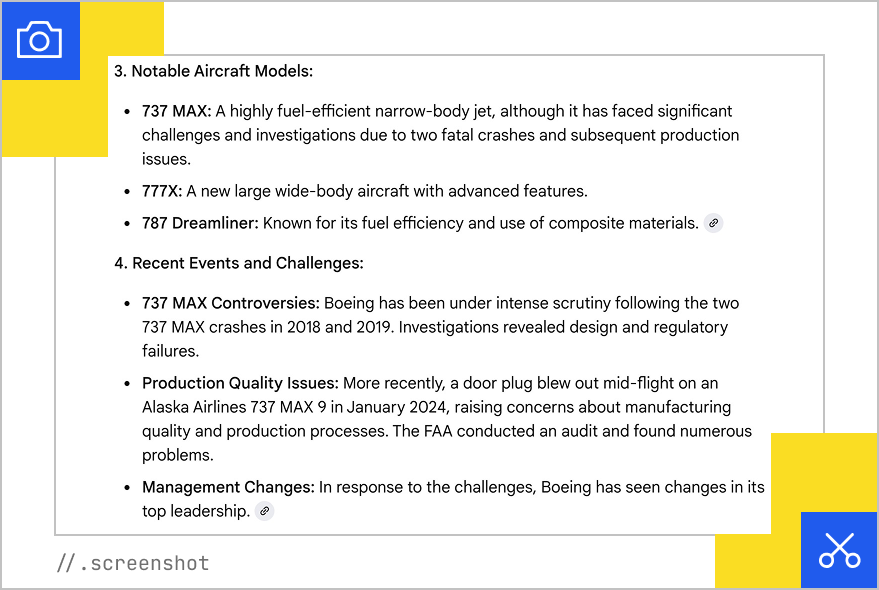
As another example, Coca-Cola’s market value fell $4 billion back in 2021 when Cristiano Ronaldo replaced a bottle of coke with water during a press conference.
The SERP and the People Also Ask Section from the results for “Coca Cola” were completely taken over by the negative press:
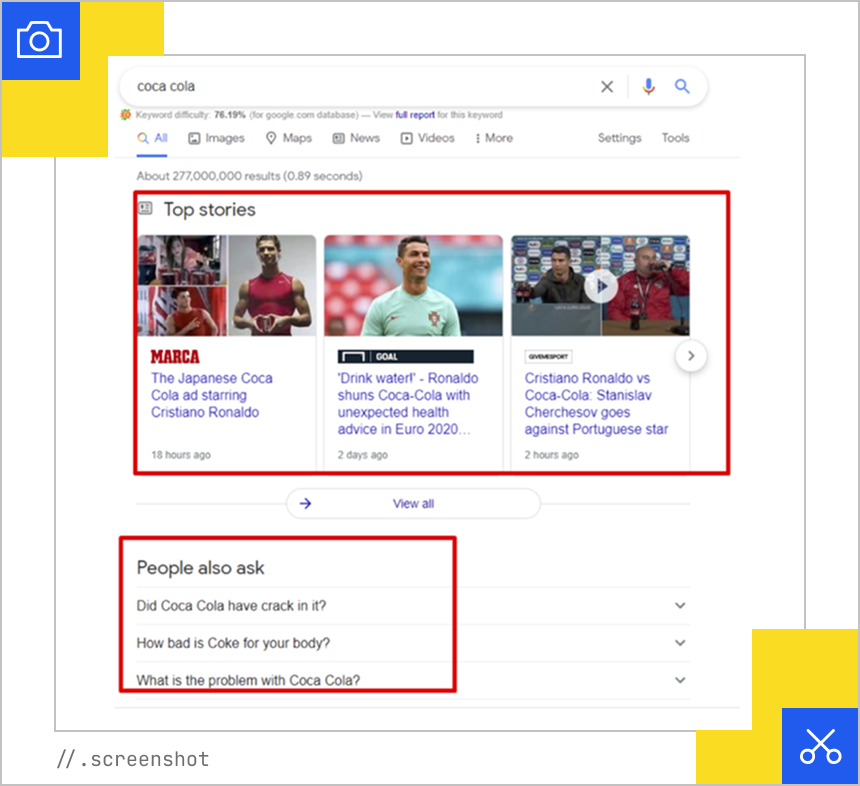
While Coca Cola recovered, now AI Overviews are appearing through the SERPs, impacting the reputation of brands. Here’s an AI Overview that shows up in the Things to Know about the brand:
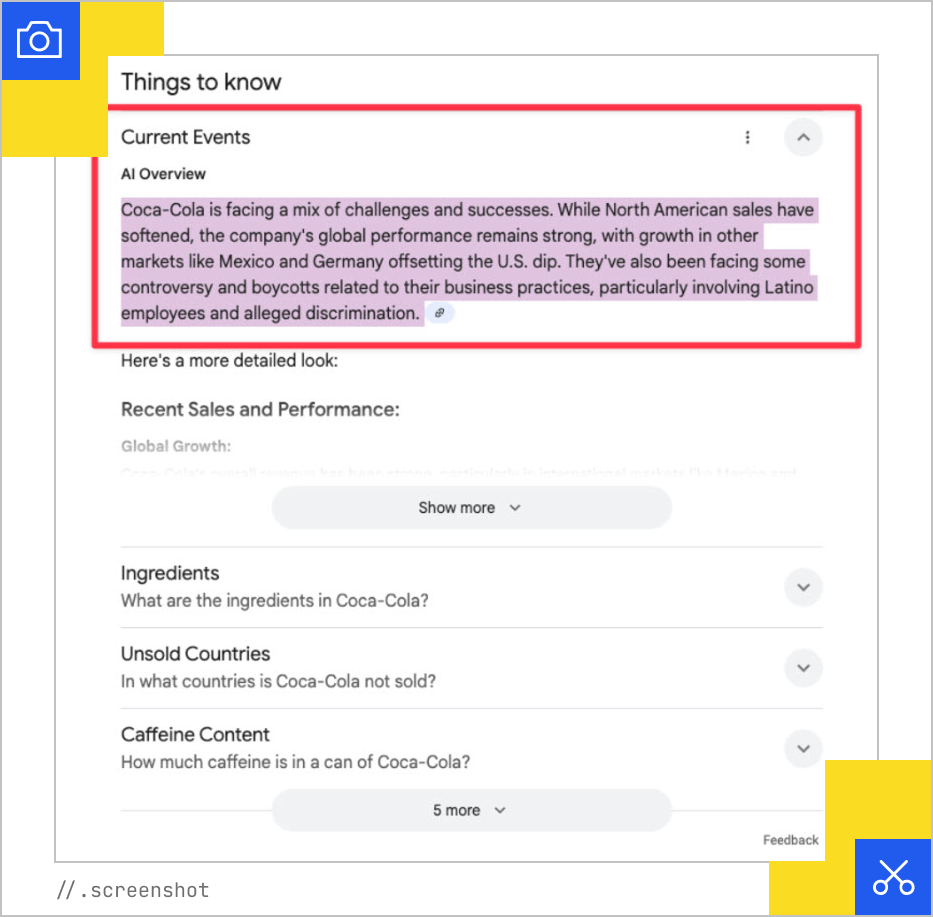
Reputation management at the enterprise level also includes key executives, public-facing team members, and even the celebrities or influencers tied to your brand. A piecemeal strategy won’t cut it. You need a full, coordinated approach.
The Edelman Trust Barometer found that 68 percent of consumers trust search engines for general information and news. On top of that, 91 percent say reviews of local branches shape how they feel about a larger brand. That means every search result and review has the power to influence buying decisions.
Relevance Engineering in the Wild
Many enterprise companies are already making use of AI technology and putting Relevance Engineering strategies into practice.
For example, Amazon utilizes topic modeling to create content clusters. Their learning model, Amazon Comprehend, examines documents to determine the context and meaning of a word. Then the words that frequently belong to the same context across the entire document set make up a topic.
Amazon explains: “You can give Amazon Comprehend a collection of news articles, and it will determine the subjects, such as sports, politics, or entertainment.”
Wells Fargo uses the Pega Customer Decision Hub for personalization, which “provides real-time modeling and adaptive machine learning that allow the bank to constantly recalculate each individual’s ‘next best conversation’ while those individuals are interacting in-channel” to ensure each customer message is relevant.
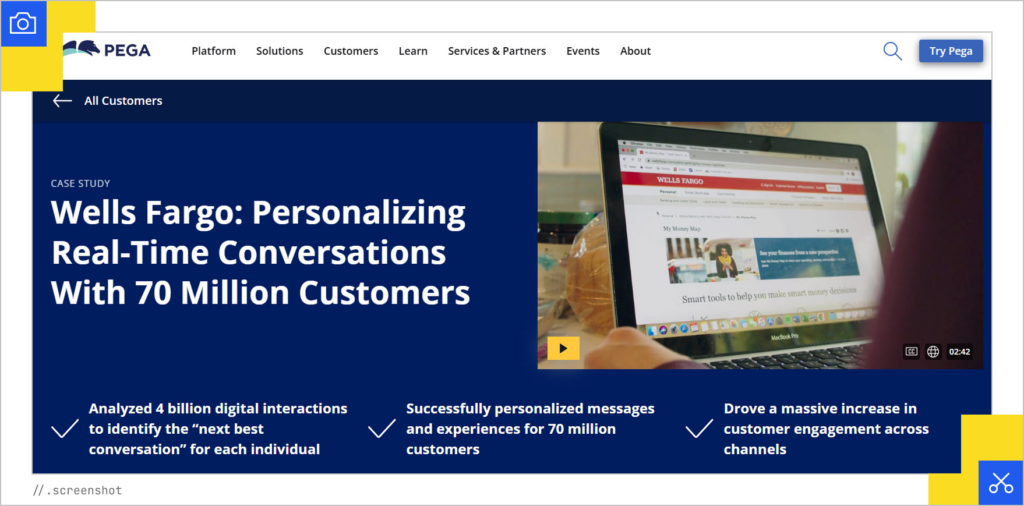
Technical SEO and Relevance Engineering
Technical SEO is the foundation that keeps your enterprise website running smoothly behind the scenes. It makes sure your site can be crawled, indexed, and ranked without running into roadblocks that could limit your visibility.
Search rankings fluctuate daily and thousands of websites are impacted each time Google releases a core algorithm update. Some benefit while others take a hit, losing traffic and watching their rankings slide. We’re moving to a shift where search rankings matter less and visibility matters more since AI Mode is probabilistic. Are you showing up in your core topics?
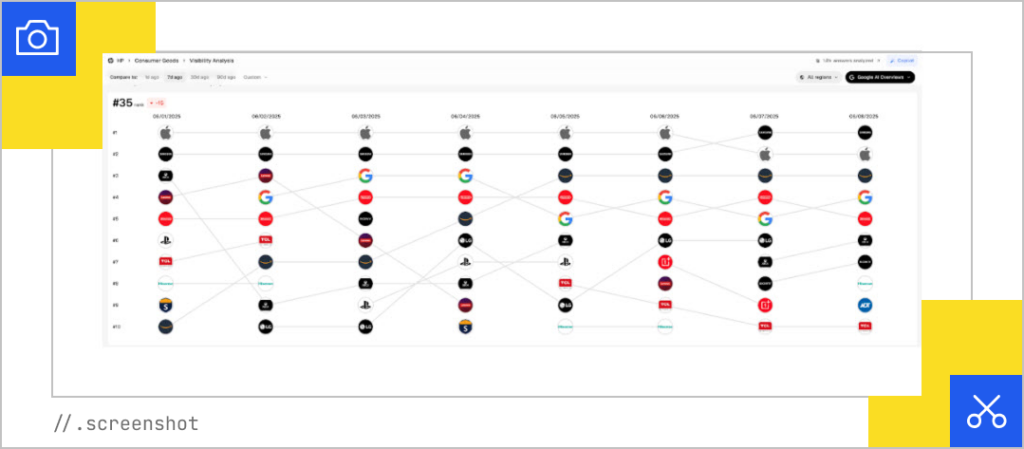
The consensus among most SEO professionals is that if your site’s architecture, content, and technical foundation are solid, you’re less likely to be affected by a core update. But how confident are you that your site can withstand the next wave?
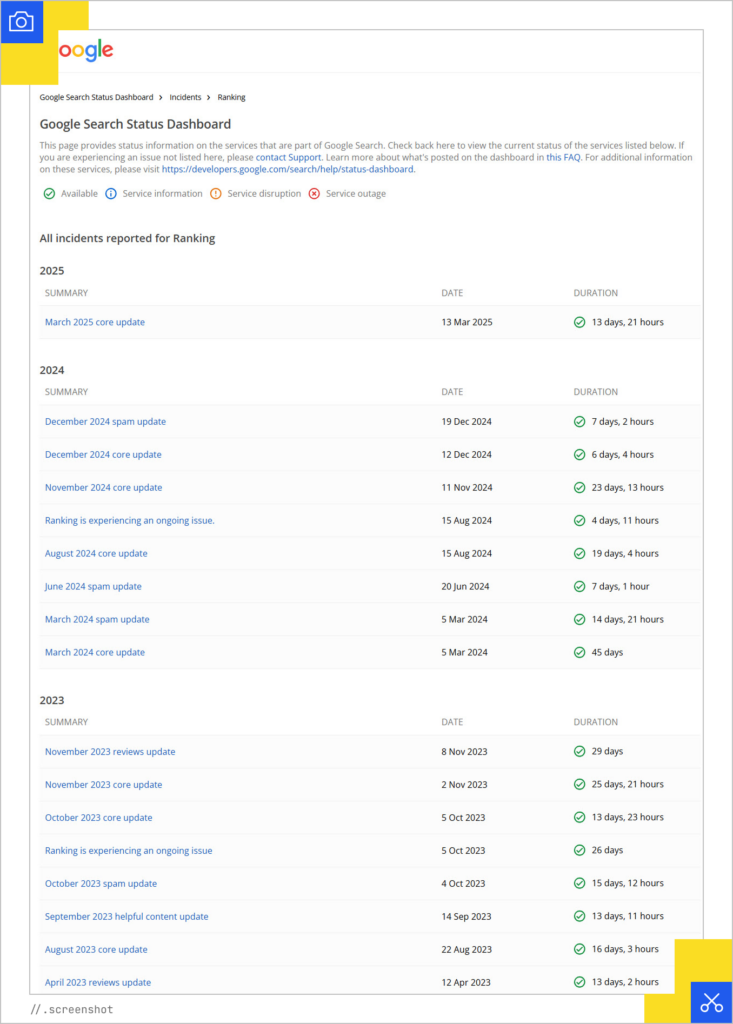
Traditional technical SEO fixes may not always work for enterprise companies and one small change could spiral into a disaster.
For example, Ryanair lost all their search visibility when someone updated their robots.txt file to disallow. This meant Google would stop crawling Ryanair’s website until they updated the robots.txt file, so for 12 days, the site received zero new visitors from organic search, which is a huge loss.
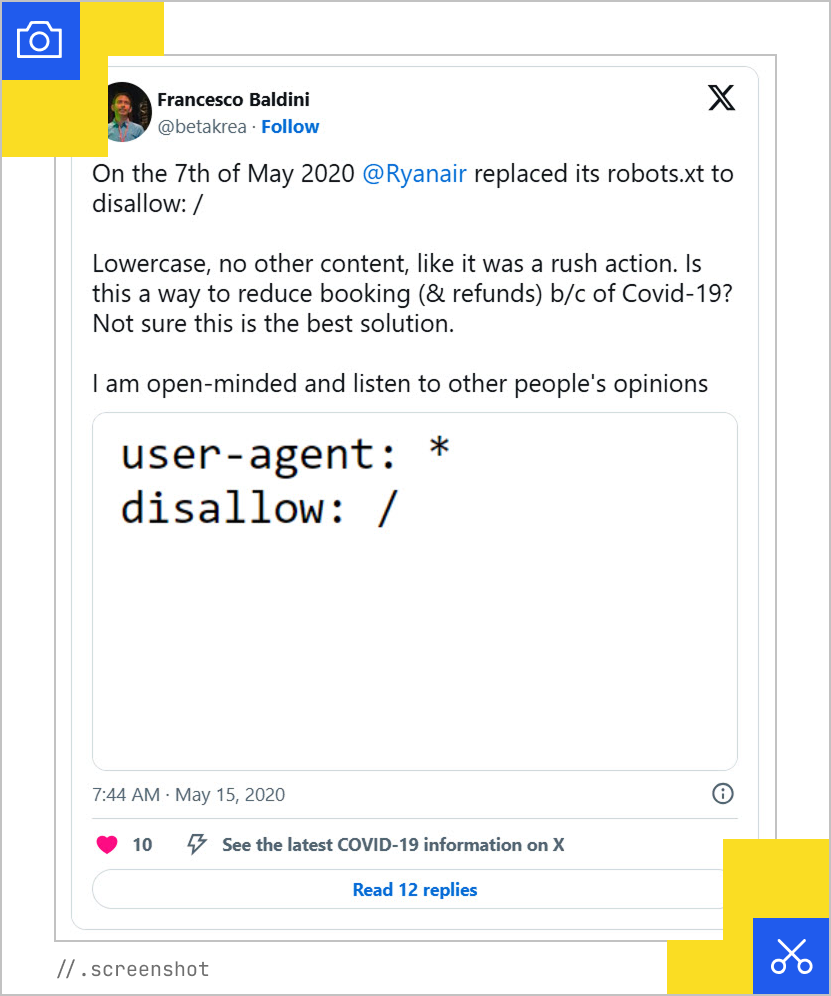
JavaScript and Crawl Budgets
Core Web Vitals are essential for user experience, which impacts visibility, and as your site grows larger and more complex, your technical setup needs to stay sharp. Many enterprise websites struggle with technical problems or outdated systems that weren’t built with SEO in mind. That’s why it’s so important to work with a team that knows how to clean up and future-proof your infrastructure.
An experienced enterprise SEO agency will improve your site’s performance and user experience by addressing everything from slow load times to JavaScript issues that interfere with usability, including:
- Managing redirects
- Fixing broken links
- Optimizing JavaScript for SEO
- Enhancing page experience and load speed
- Adding structured Schema markup to help Google understand your content
- Supporting dynamic content and personalization
- Exploring opportunities with natural language processing and machine learning
There’s a clear connection between how often your site gets crawled and how well it ranks. Correlation studies have shown that efficient crawl management can have a direct impact on your organic visibility.
Google Search Console gives you a solid starting point for understanding this relationship. You can track crawl activity over time, broken down by things like subdomains, file types, and different types of crawlers. It also highlights crawl waste, like when multiple versions of the same page are crawled because of URL parameters or duplicate content.
The index report shows how much of your site is actually getting indexed, so you can compare the number of indexed pages to those left out. This helps you identify what’s holding your content back and what needs fixing.
One of our SEO engineers at iPullRank, Michael Tandoh, explains: “These insights allow enterprise SEOs to fine-tune technical levers like robots.txt, XML sitemaps, canonical tags, and noindex directives. For even deeper visibility, log file analysis can uncover exactly what Googlebot is crawling and what it is ignoring, enabling you to prioritize high-value content and eliminate crawl noise.”
Strategy for Engineering Relevant Content
Enterprise SEO is defined by scale, structure, and strategy. You’re managing thousands of URLs that influence visibility and performance.
This is where Relevance Engineering comes in. It’s about designing content systems that are resonant, experiential, and actionable. Content should connect with the audience and serve a clear purpose.
Picture a site with hundreds or thousands of product and category pages. You need automation, cross-functional collaboration, and workflows that maintain quality at volume.
Are you doing it right?
- Decide what content gets migrated, cut, or rewritten.
- Map source URLs to destination URLs, including broken link paths.
- Transfer the content and implement proper redirects.
- Update internal links, canonical tags, and XML sitemaps.
- Crawl the site to validate redirect logic and check for errors.
- Submit a change of address in Google Search Console.
We used Relevance Engineering for a client to quantify strategic alignment across 1,000+ blog posts. We then pruned 500+ underperforming pieces of content, and lifted sitewide semantic relevance by 2–3%.
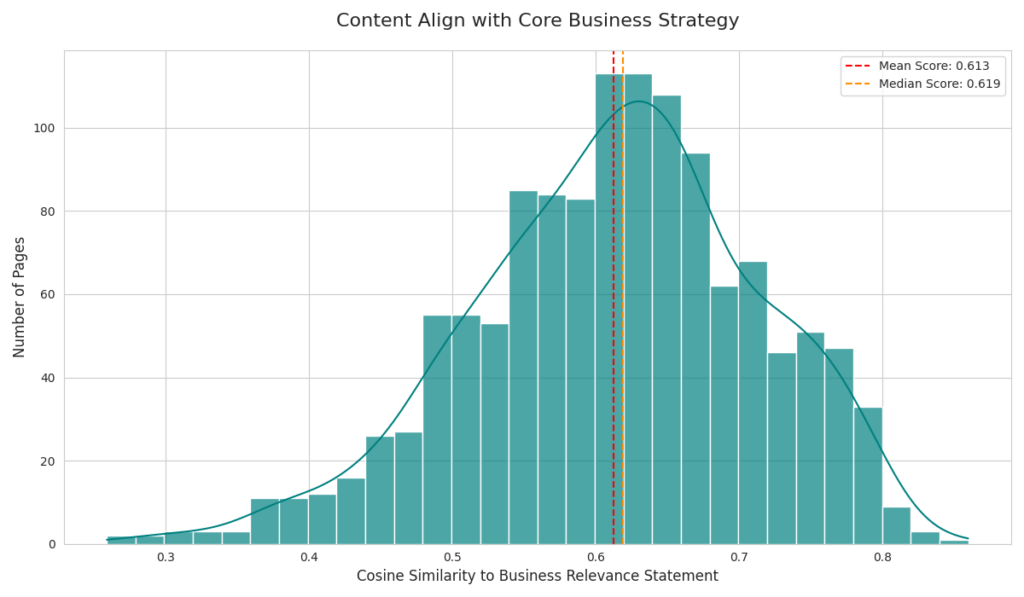
In addition to pruning old content, there are also many semantic techniques you can try today to help improve your current content and get new content more visible in LLMs.
EEAT via Relevance Engineering
With AI Overviews and LLMs shaping how results are generated, your content still needs to be trustworthy, well-structured, and clearly valuable. That’s where real authority makes a difference.
AI Mode retrieves and ranks content at the passage level, meaning even small sections of your content need to stand on their own. Google and other platforms are constantly evaluating how much trust they can place in your content. That’s why E-E-A-T still matters.
E-E-A-T stands for:
- Experience
- Expertise
- Authority
- Trustworthiness
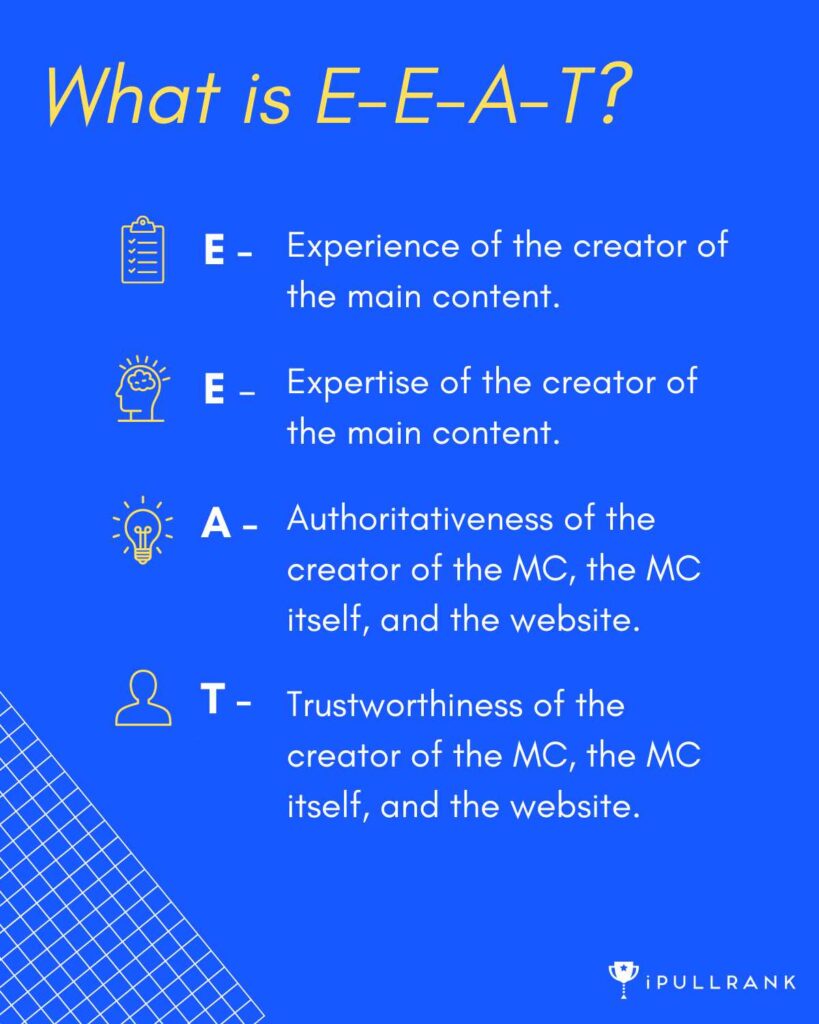
These are the same signals Google uses in its Search Quality Evaluator Guidelines to help determine if your site deserves to be cited in AI-generated answers or featured at the top of results.
To improve how your site performs under this new system, here are some steps we take:
- Make sure all outbound links go to reputable sources.
- Include real-world experience, data, or case studies in your content.
- Clean up spam comments or anything that damages credibility.
- Monitor and manage your online reputation, especially when dealing with negative SEO.
- Add author bios to blog posts so people (and search engines) know who’s behind the content and can create an average vector to represent your work.
- Strengthen the presence of executives and subject matter experts.
- Update or prune content that no longer reflects your brand’s quality.
AI-driven search is built on trust. If your content feels real, helpful, and reliable, it’s more likely to be surfaced, cited, and shared, whether someone clicks or not. That kind of visibility builds influence, even when traffic isn’t the whole story.
Selecting the Right Enterprise SEO Agency
AI is evolving faster than traditional SEO can keep up. Many agencies are struggling with the pace and understanding how to pivot their strategies. Your enterprise SEO agency should be an ally for your team in education and efficiency. If you’re evaluating potential enterprise SEO partners, here’s what actually matters:
Strategic Agility
Google updates its algorithm thousands of times a year. Most updates are minor, but core changes can reshape entire SERPs. You need an agency that can adapt strategies fast, analyze volatility, and capitalize on fresh ranking opportunities.
Data as Infrastructure
Scalable SEO strategies start with data. Your agency should be fluent in analytics, with the ability to track and interpret every key signal, including impressions, conversions, crawl stats, and behavioral insights.
Full-Stack SEO Teams
Enterprise SEO requires an integrated team including:
- SEO engineers and strategists
- Technical specialists
- Content writers and editors
- Analysts and reporting leads
- PR and market research experts
- Account managers and project owners
Scalable SEO Automation
When your website has tens of thousands (or even hundreds of thousands) of pages, scalability is the only way forward. The right agency will use automation to identify issues, resolve errors, monitor crawl performance, and maintain technical health across large-scale sites. Automation creates space for strategy by eliminating inefficiencies and reducing manual effort.
Choosing an enterprise SEO agency is a high-impact decision. Look for partners who build systems, think strategically, execute at scale, and know how to turn complexity into growth. Is your agency advising you for the AI-driven future of search or are they stuck in the past?
If you want to know how iPullRank can help your enterprise website stay ahead of the game, reach out to us today and let’s make a plan together.

